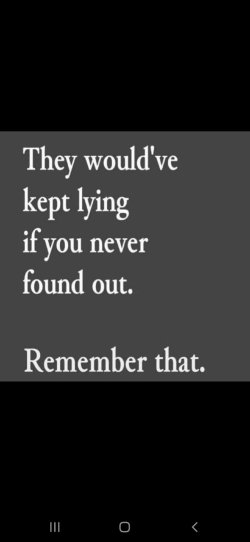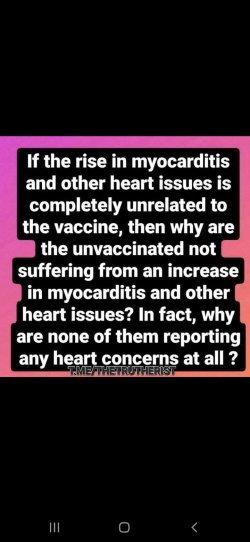Interesting . I recently ran across an article by former U.S. Surgeon General Dr. C. Everett Koop who claims that germs and viruses have a harder time attacking healthy people with circulatory and digestive systems that are stronger through diets made up of organic vegetables and whole foods. Over processed and devitalized foods such as white flour , white rice and sugared products make your immune system weaker . Made sense to me and I have adopted his recommendations .After the coronavirus, I really felt very tired and depressed for a long time, only sports and a healthy lifestyle began to help me, now I spend more time in the fresh air
You are using an out of date browser. It may not display this or other websites correctly.
You should upgrade or use an alternative browser.
You should upgrade or use an alternative browser.
Coronavirus...post your thoughts here...
- Thread starter Fishmanic
- Start date
I just keep getting the booster vaccinations, and using common sense. Common sense is a lousy preventative though, as a virus doesn't share our logic. As an asthmatic, I hope not to get it this winter.
I know some previously healthy living people who have had wicked cases of covid, but it has really walloped the overweight, inactive and elderly. I'm in no hurry to be any of the three, but will accept being elderly in time if I get that far.
I know some previously healthy living people who have had wicked cases of covid, but it has really walloped the overweight, inactive and elderly. I'm in no hurry to be any of the three, but will accept being elderly in time if I get that far.
After the coronavirus, I really felt very tired and depressed for a long time, only sports and a healthy lifestyle began to help me, now I spend more time in the fresh air
Attachments
I witnessed hundreds of unvaccinated patients die at our hospital during Covid pandemic. Not a single vaccinated Patient died during their hospitalization. Let’s not open this form to conspiracy theorist please.
They always post, and forums always see them. They are terrified of the unknown. Conspiracies are so much easier and so much more comforting than having to figure out difficult things.
They are fluent in memes their leaders have had made.
They are fluent in memes their leaders have had made.
WhistlingBadger
Professional Cat Herder
Retired Moderator ⚒️
2x Tank of the Month 🏆
Fish of the Month 🌟

- Joined
- Dec 18, 2011
- Messages
- 7,595
- Reaction score
- 15,347
- Location
- Where the deer and the antelope play
I just try to do what my friend recommends, the one with the M and the D after his name. He, in turn, defers to me on musical questions. Seems reasonable.
outofwater
Fish Addict
My favorite thread 
OnlyGenusCaps
Fish Crazy
I've been pondering this recently... Why is it that health/medical related science has so many pushing back against it? And this is not political (though if I mentioned which ones and where, I am sure it would be), but across all stances. I don't understand why this particular application of science flusters so many. And before anyone gets on their high-horse, if you have ever utter the phrase "the science says", you might be guilty too! I mean, reality is real, why can't we all get behind it? I have likely opened a can of worms I didn't intend to. My apologies in advance to the mods! It's just that as a scientist, I watch people champion it, and deny it in the same breath; and I am at a loss. I love people, I believe in them, and I give them the benefit of the doubt. I guess I just wish I could help people understand. And I know, the hardest part of training new scientists is getting people to understand that science is only there to prove you wrong. To correct your biases. To make you the fool. That's hard to swallow, and I've seen (and helped) many a student who couldn't handle that wash out. As it should be. Perhaps, I don't understand how to get the public at large, who benefit from the advances science has created daily, to appreciate science. It asks too much of them to have them give of themselves as a scientist is expected to. So, how to engage? I don't know. And I often fail. But I hold hope for the future. A data driven future. Perhaps I am a fool.
I think there is an overall push to get our societies away from science among people who are insecure about the place of their beliefs in the world around them. That's a serious can of worms. With the exception of all the ones who took veterinary meds because they were told to, the most common response I get when I ask moderate antivaxxers for an alternative , given that I have an elderly fragile person living with me, is generally a religious response. It's not one faith - it can be Christian, Islamic, Hindu or from smaller groups. Some form of prayer or observance is always their solution.
I think that says a lot. I could be wrong. Maybe it's just the people I meet.
In this, I am talking with anti science people who are not the extremist political fringe that leads the anti vaccination, anti science movements.
There is no one reason, but the movement is ancient, going back hundreds of years to the start of the modern scientific method. The best commentary on COVID responses I've seen is in diaries from the 1660s Black Death plague. People don't change.
I think that says a lot. I could be wrong. Maybe it's just the people I meet.
In this, I am talking with anti science people who are not the extremist political fringe that leads the anti vaccination, anti science movements.
There is no one reason, but the movement is ancient, going back hundreds of years to the start of the modern scientific method. The best commentary on COVID responses I've seen is in diaries from the 1660s Black Death plague. People don't change.
outofwater
Fish Addict
That kind of condescending view doesn't help. I'm unvaccinated, I traveled as much as I could, by air and land, and remained unmasked as often and as long as I could in all situations. I was called grandma killer, was threatened with losing my job, had to endure the same pompous rhetoric and be ostracized from society by fanatics who reject any form of spirituality or religion, yet treat "the science" as one, and the profiteers like the "no liability clause" big pharma fat cats or that insufferable, self contradictory garden gnome fauci as revered prophets of their infallible secular culture.I think there is an overall push to get our societies away from science among people who are insecure about the place of their beliefs in the world around them. That's a serious can of worms. With the exception of all the ones who took veterinary meds because they were told to, the most common response I get when I ask moderate antivaxxers for an alternative , given that I have an elderly fragile person living with me, is generally a religious response. It's not one faith - it can be Christian, Islamic, Hindu or from smaller groups. Some form of prayer or observance is always their solution.
I think that says a lot. I could be wrong. Maybe it's just the people I meet.
In this, I am talking with anti science people who are not the extremist political fringe that leads the anti vaccination, anti science movements.
There is no one reason, but the movement is ancient, going back hundreds of years to the start of the modern scientific method. The best commentary on COVID responses I've seen is in diaries from the 1660s Black Death plague. People don't change.
As you indicate, this is a phenomenon that goes well beyond Covid and vaccination. But focusing on vaccination for a second, the possibility from dying in an automobile accident is log fold higher then undergoing a complication from a vaccination. Even the dreaded myocarditis is usually a temporary condition with resolution in most cases. Then there is the selfish element of being an anti-VAXer. During a pandemic vaccines are used to reach herd immunity. These people put themselves above the needs of the group. As Spok so wonderfully put it, “ the needs of the many outweigh the needs of the few”.
And even if you don't get vaccinated... What's so hard about just wearing a mask inside places?As you indicate, this is a phenomenon that goes well beyond Covid and vaccination. But focusing on vaccination for a second, the possibility from dying in an automobile accident is log fold higher then undergoing a complication from a vaccination. Even the dreaded myocarditis is usually a temporary condition with resolution in most cases. Then there is the selfish element of being an anti-VAXer. During a pandemic vaccines are used to reach herd immunity. These people put themselves above the needs of the group. As Spok so wonderfully put it, “ the needs of the many outweigh the needs of the few”.
OnlyGenusCaps
Fish Crazy
My apologies to all. I had not meant to stir the pot on vaccines specifically. Certainly the recent global pandemic has given me a new lens through which to ponder these issues, but I've observed this behavior for... I suppose much of my life. I grew up around folks who were staunch advocates for science, and yet some sought things such as the "healing power of crystals" as well. It seemed a contradiction to me even as a child. I suppose I am often curious whether a better understanding of why perfectly rational, competent, and compassionate people can vocally support a data driven life at one moment, but when it comes to all manner of health related topics, jettison their previously dedicated stance toward the utility of science - and usually just on the one aspect. Perhaps this was not the place to open this broader discussion, however. And for that I take full responsibility. I hope we can all respect one and other. And if there is anyone I offended, please know, I do not dislike people with whom I may disagree. Though, I do genuinely seek to better understand their perspective, which I suppose can come off as interrogatory, when it is simply inquisitiveness. I'll leave it there.
WhistlingBadger
Professional Cat Herder
Retired Moderator ⚒️
2x Tank of the Month 🏆
Fish of the Month 🌟

- Joined
- Dec 18, 2011
- Messages
- 7,595
- Reaction score
- 15,347
- Location
- Where the deer and the antelope play
My problem with these issues is that I can usually see some sense in both sides. I guess it comes from being a conservative folk singer. I tend to not get too riled about things and, like I said, do what the doctors say, especially when the doctor is a personal friend who, I'm reasonably sure, sincerely has my best interest at heart. But I can see where some of the antis are coming from.My apologies to all. I had not meant to stir the pot on vaccines specifically. Certainly the recent global pandemic has given me a new lens through which to ponder these issues, but I've observed this behavior for... I suppose much of my life. I grew up around folks who were staunch advocates for science, and yet some sought things such as the "healing power of crystals" as well. It seemed a contradiction to me even as a child. I suppose I am often curious whether a better understanding of why perfectly rational, competent, and compassionate people can vocally support a data driven life at one moment, but when it comes to all manner of health related topics, jettison their previously dedicated stance toward the utility of science - and usually just on the one aspect. Perhaps this was not the place to open this broader discussion, however. And for that I take full responsibility. I hope we can all respect one and other. And if there is anyone I offended, please know, I do not dislike people with whom I may disagree. Though, I do genuinely seek to better understand their perspective, which I suppose can come off as interrogatory, when it is simply inquisitiveness. I'll leave it there.
Part of it is that, while science is unbiassed and fact-based, scientists are human just like the rest of us, and subject to preconceived notions, hubris, greed, and all the other faults of humanity. Peer review helps, but it's hardly infallible. Some people seem to think that "the science" (or in education, "the research") is the infallible settler of all conflict, the sole distributer of all truth and reality. But power, including the intellectual kind, corrupts, and those with the power often do not have the best interests of ordinary people at heart. That being so, it can be healthy to not trust the establishment too much, scientific or otherwise.
Right along with that goes the often healthy distrust of government upon which our great nation was founded. Many Americans value liberty more than safety, and will gladly put themselves and others at risk in order to safeguard their individual freedom. These people don't want the government telling them what to do any more than necessary, and when the government steps beyond its bounds, people get upset. And they should. Others value safety more than freedom, and just can't comprehend why that first group can't just wear the #!*$ mask.
And of course, history shows that government entities generally don't like giving up power once they have it.
I'm not trying to take any sides politically. I'm just saying that usually when I hear someone entirely on one side or the other, my gut reaction is "It isn't that simple." Taken to extremes, all of the above views can cloud judgement and affect how the data is spun. Conspiracy theories about, name calling starts, and away we go.
An interesting book on the topic is The Righteous Mind: Why Good People Are Divided by Politics and Religion by Haidt. The author goes into the different core values people have (all of which are morally neutral) and how they affect one's reaction to situations like covid.
@outofwater
I think it stopped being your favourite thread!
Just remember, the ideologically pure ones who took flak for their actions were not the victims. Those who died or were disabled by the pandemic were, as were their families.
People had to take responsibility for their own actions, and to expect no consequences would have been short sighted. Religion is an opinion like any other, and when it's treated as equal to other other ideas, that's called called condescending. It's a debating game trick.
@OnlyGenusCaps I used to think we were all logical and capable of developing logical world views, but I doubt that now. I've seen enough healing crystals and homeopathy to be certain I was wrong. We get superstitious about things we can't control, and who can control their world? If you're a researcher engaged in the practical gathering and analyzing facts and data, maybe it shields you from seeing uncertainties as bad things. It puts them into perspective, since a scientist should be uncertain by definition. You work in a skeptical art.
I think it stopped being your favourite thread!
Just remember, the ideologically pure ones who took flak for their actions were not the victims. Those who died or were disabled by the pandemic were, as were their families.
People had to take responsibility for their own actions, and to expect no consequences would have been short sighted. Religion is an opinion like any other, and when it's treated as equal to other other ideas, that's called called condescending. It's a debating game trick.
@OnlyGenusCaps I used to think we were all logical and capable of developing logical world views, but I doubt that now. I've seen enough healing crystals and homeopathy to be certain I was wrong. We get superstitious about things we can't control, and who can control their world? If you're a researcher engaged in the practical gathering and analyzing facts and data, maybe it shields you from seeing uncertainties as bad things. It puts them into perspective, since a scientist should be uncertain by definition. You work in a skeptical art.
Similar threads
- Replies
- 12
- Views
- 3K
- Replies
- 12
- Views
- 13K
- Replies
- 10
- Views
- 2K




